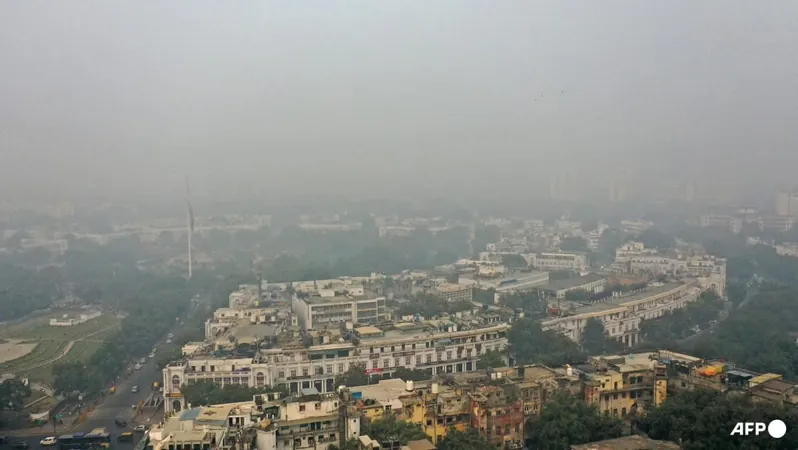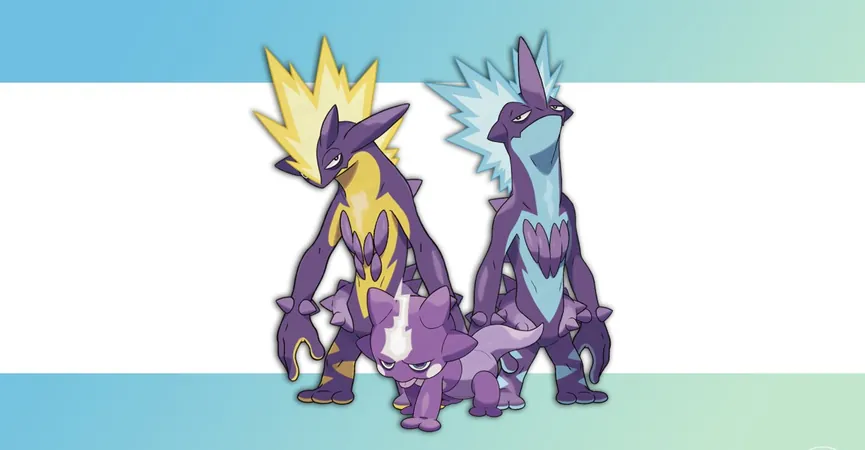
Schools in New Delhi Shift to Online Classes Amid Toxic Smog Crisis
2024-11-18
Author: Siti
New Delhi's Air Quality Crisis
New Delhi is grappling with a severe air quality crisis as India's capital has decided to transition to online classes for all schools starting Monday, November 18, until further notice. This drastic measure aims to combat the alarming levels of toxic smog that have enveloped the city, threatening the health of millions of residents.
Alarming Pollutant Levels
Just over the weekend, PM2.5 pollutant levels soared to a staggering 57 times higher than the World Health Organization's recommended daily maximum. By Monday morning, these levels remained dangerously elevated, measuring around 39 times above acceptable limits, resulting in a thick, acrid haze that settled over the city.
Causes of the Smog Crisis
The annual struggle against smog is primarily attributed to agricultural practices—specifically, farmers burning stubble from harvested crops to prepare fields for the next planting season. Coupled with emissions from factories and vehicular exhaust, these factors contribute to New Delhi's notorious air quality crisis.
Government Response
City officials are hopeful that by moving children to virtual classrooms, traffic congestion will decrease, thereby alleviating some of the pollution. Chief Minister Atishi announced the suspension of physical classes for all students, with exceptions only for those in Class 10 and Class 12, which often hold critical examinations. Earlier, in-person classes for primary schools had already been halted.
Emergency Measures Implemented
In addition to educational changes, the government is implementing a series of emergency measures, including restrictions on diesel-powered trucks and construction activities. Authorities are also advising vulnerable groups—children, the elderly, and individuals with heart or lung conditions—to remain indoors as much as possible.
Public Health Concerns
The grim reality is that many residents cannot afford air quality filters or lack well-sealed homes to shield themselves from the hazardous air. The persistent threat posed by polluted air has been linked to thousands of premature deaths in the region each year.
Impact on Residents
New Delhi, along with its metropolitan area, is home to over 30 million people and frequently ranks as one of the most polluted cities in the world during winter months. Meteorological conditions worsen this crisis, as cooler temperatures and stagnant winds trap harmful pollutants in the atmosphere from mid-October onwards, often lasting through January.
Legal Recognition of Right to Clean Air
In a landmark decision last month, India's Supreme Court recognized the right to clean air as a fundamental human right and ordered both federal and state governments to take decisive action to address this ongoing public health emergency. As New Delhi faces this dire situation, the community waits to see what further steps will be taken to safeguard the health of its residents.




 Brasil (PT)
Brasil (PT)
 Canada (EN)
Canada (EN)
 Chile (ES)
Chile (ES)
 España (ES)
España (ES)
 France (FR)
France (FR)
 Hong Kong (EN)
Hong Kong (EN)
 Italia (IT)
Italia (IT)
 日本 (JA)
日本 (JA)
 Magyarország (HU)
Magyarország (HU)
 Norge (NO)
Norge (NO)
 Polska (PL)
Polska (PL)
 Schweiz (DE)
Schweiz (DE)
 Singapore (EN)
Singapore (EN)
 Sverige (SV)
Sverige (SV)
 Suomi (FI)
Suomi (FI)
 Türkiye (TR)
Türkiye (TR)